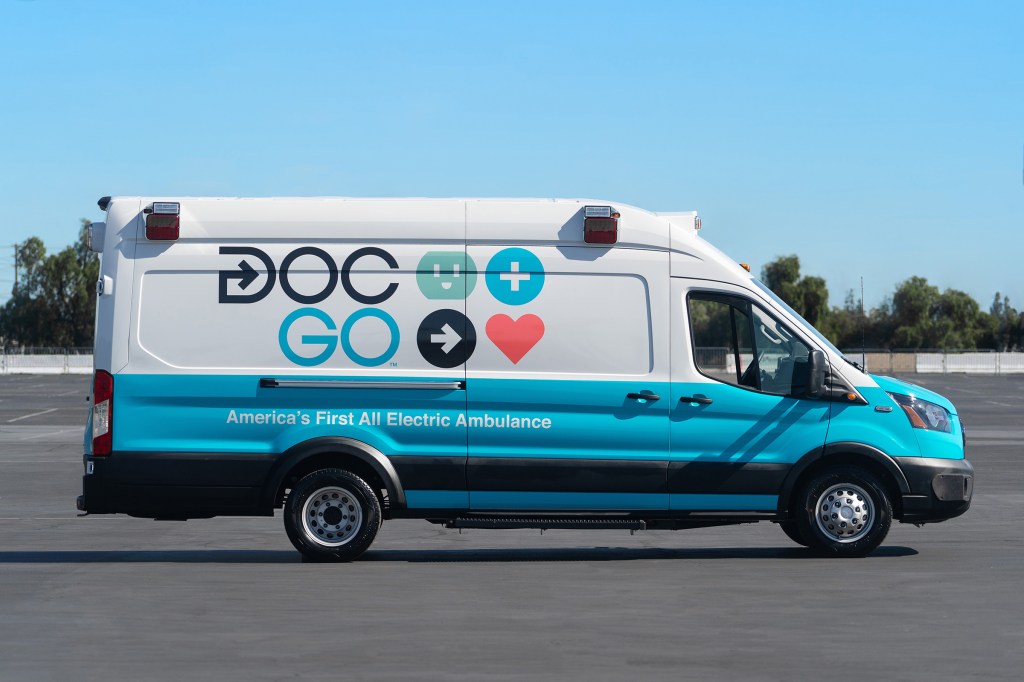New York City has quickly become the epicenter of the nation’s migrant crisis, with the influx of asylum-seekers pushing the city’s already-stretched resources far beyond their limits.
Seeing this emergency grow larger by the day, the company I lead, DocGo, stepped forward to use our expertise in logistics and mobile care to help New York City relocate asylum-seekers to Upstate New York, expand shelter capacity within New York City, and provide meals and other services to thousands in need.
I’m proud of the work we’ve done. Working with the New York City Department of Housing Preservation and Development (HPD) and the Mayor’s Office of Housing Recovery Operations (HRO), our company has helped serve more than 16,000 asylum seekers and provide more than 1.6 million nights of housing to individuals — including families with children who were at risk of being left on the street.
New York City was faced with the unprecedented need to rapidly create an entirely new system of humanitarian sites for this influx of asylum seekers, and companies like ours played a vital role in their ability to scale at pace with the crisis.
Despite these successes, DocGo has faced an outsized amount of criticism for taking on this mission-driven work. Unfortunately, this dynamic is far from unusual when private enterprise steps up to provide disaster relief.
In a crisis, whether a natural disaster or a pandemic, private enterprise plays a critical role in helping meet the needs of vulnerable populations. Often, governments partner with companies like ours to move faster and with more agility. This ethos enabled Pfizer and Moderna to develop a COVID-19 vaccine in less than a year, an accomplishment that has been compared to putting a man on the moon.
This same ethos is why New York City awarded DocGo an emergency one-year contract with a not-to-exceed budget of $432 million to provide NYC with support services for asylum seekers. Notably, the amount of our year-one invoices was less than 55% of this contract’s not-to-exceed amount. As a New York company, we’re proud that more than 70% of our invoiced charges were paid directly to subcontractors and hotel owners, including local businesses and women, minority, and veteran-owned companies.
To date, we have provided more than 100,000 medical and behavioral health appointments across our HPD and HRO programs. We have served millions of meals, and we’ve helped more than 3,200 guests reconnect with friends and family, putting them on a path to self-sufficiency. Our staff have gone above and beyond the typical call of duty, working at times around the clock and through holiday weekends to ensure that arriving asylum seekers do not sleep in the cold.
Responding to a crisis of this scale also required partnership — and we worked with leading refugee resettlement nonprofits and invited additional community-based organizations on-site to offer support services, such as clothing donations, legal services and ESL courses.
Yet our positive work helping NYC meet the needs of this crisis and provide care for this vulnerable population was still met with frequent criticism. We’ve seen this happen before when private enterprises stepped up to help provide emergency services and disaster relief. Contractors that helped NYC rebuild after Superstorm Sandy were accused of being unqualified and failing to adequately do their part. Some questioned whether Moderna and Pfizer’s COVID vaccines were leading to adverse health risks, despite saving millions of lives.
Any emergency response project of this scale and magnitude will face challenges, but we have seen these unreasonably and opportunistically magnified. In stark contrast to negative coverage of this program, an independent audit of every upstate site by the New York State Office of Temporary and Disability Assistance (OTDA) found none of the reported issues, and our ongoing asylee satisfaction survey research shows that 93% of the migrants in our care feel supported.
Mission-driven companies like DocGo will continue to step up and serve where and when we can. It is our hope that policymakers and New Yorkers will continue to join us in finding solutions that help meet the challenges of the day.
In the words of President Teddy Roosevelt, “It is not the critic who counts; not the man who points out how the strong man stumbles, or where the doer of deeds could have done them better. The credit belongs to the man who is actually in the arena.”
Despite the attention, we are proud to be in the arena, doing the work that needs to be done.
Bienstock is CEO of DocGo.
